By Brooksie C. Fontaine & Sara R. McKearneyFew tropes are as ubiquitous as that of the hero. He takes the form of Superman, ethically and non-lethally thwarting Lex Luthor. Of Luke Skywalker, gazing wistfully at twin suns and waiting for his adventure to begin. In pre-Eastwood era films, a white Stetson made the law-abiding hero easily distinguishable from his black-hatted antagonists. He is Harry Potter, Jon Snow, T’Challa, Simba. He is of many incarnations, he is virtually inescapable, and he serves a necessary function: he reminds us of what we can achieve, and that regardless of circumstance, we can choose to be good. We need our heroes, and always will. But equally vital to the life-blood of any culture is his more nebulous and difficult to define counterpart: the antihero. Whereas the hero is defined, more or less, by his morality and exceptionalism, the antihero doesn’t cleanly meet these criteria. Where the hero tends to be confident and self-assured, the antihero may have justifiable insecurities. While the hero has faith in the goodness of humanity, the antihero knows from experience how vile humans can be. While the hero typically respects and adheres to authority figures and social norms, the antihero may rail against them for any number of reasons. While the hero always embraces good and rejects evil, the antihero may embrace either. And though the hero might always be buff, physically capable, and mentally astute, the antihero may be average or below. The antihero scoffs at the obligation to be perfect, and our culture's demand for martyrdom. And somehow, he is at least as timeless and enduring as his sparklingly heroic peers. Which begs the question: where did the antihero come from, and why do we need him? The Birth of the Antihero:It is worth noting that many of the oldest and most enduring heroes would now be considered antiheroes. The Greek Heracles was driven to madness, murdered his family, and upon recovering had to complete a series of tasks to atone for his actions. Theseus, son of Poseidon and slayer of the Minotaur, straight-up abandoned the woman who helped him do it. And we all know what happened to Oedipus, whose life was so messed up he got a complex named after him. And this isn’t just limited to Ancient Greece: before he became a god, the Mesoamerican Quetzalcoatl committed suicide after drunkenly sleeping with his sister. The Mesopotamian Gilgamesh – arguably the first hero in literature – began his journey as a slovenly, hedonistic tyrant. Shakespearian heroes were denoted with an equal number of gifts and flaws – the cunning but paranoid Hamlet, the honorable but gullible Othello, the humble but power-hungry MacBeth – which were just as likely to lead to their downfall as to their apotheosis. There’s probably a definitive cause for our current definition of hero as someone who’s squeaky clean: censorship. With the birth of television and film as we know it, it was, for a time, illegal to depict criminals as protagonists, and law enforcement as antagonists. The perceived morality of mainstream cinema was also strictly monitored, limiting what could be portrayed. Bonnie and Clyde, The Good the Bad and the Ugly, Scarface, The Godfather, Goodfellas, and countless other cinematic staples prove that such policies did not endure, but these censorship laws divorced us, culturally, from the moral complexity of our most resonant heroes. Perhaps because of the nature of the medium, literature arguably has never been as infatuated with moral purity as its early cinematic and T.V. counterparts. From the Byronic male love interests of the Bronte sisters, to “Doctor” Frankenstein (that little college dropout never got a PhD), to Dorian Grey, to Anna Karenina, to Scarlett O’Hara, to Holden Caulfield, literature seems to thrive on morally and emotionally complex individuals and situations. Superman punching a villain and saving Lois Lane is compelling television, but doesn’t make for a particularly thought-provoking read. It is also worth noting, however, that what we now consider to be universal moral standards were once met with controversy: Superman’s story and real name – Kal El – are distinctly Jewish, in which his doomed parents were forced to send him to an uncertain future in a foreign culture. Captain America punching Nazis now seems like a no-brainer, but at the time it was not a popular opinion, and earned his Jewish creators a great deal of controversy. So in a manner of speaking, some of the most morally upstanding heroes are also antiheroes, in that they defied society’s rules. This brings us to our concluding point: that anti-heroes can be morally good. The complex and sometimes tragic heroes of old, and today’s antiheroes, are not necessarily immoral, but must often make difficult choices, compromises, and sacrifices. They are flawed, fallible, and can sometimes lead to their own downfall. But sometimes, they triumph, and we can cheer them for it. This is what makes their stories so powerful, so relatable, and so necessary to the fabric of our culture. So without further ado, let’s have a look at some of pop-culture’s most interesting antiheroes, and what makes them so damn compelling. Note: For the purposes of this essay, we will only be looking at male antiheroes. Because the hero’s journey is traditionally so male-oriented, different standards of subversiveness, morality, and heroism apply to female protagonists, and the antiheroine deserves an article all her own. Antiheroes show the effects of systematic inequalities.As demonstrated by: Tommy Shelby from Peaky Blinders. Why he could be a hero: He’s incredibly charismatic, intelligent, and courageous. He deeply cares for his loved ones, has a strict code of honor, reacts violently to the mistreatment of innocents, and demonstrates surprisingly high levels of empathy. Why he’s an antihero: He also happens to be a ruthless, incredibly violent crime lord who regularly slashes out his enemies’ eyes. What he can teach us: From the moment Tommy Shelby makes his entrance, it becomes apparent that Peaky Blinders will not unfold like the archetypical crime drama. Evocative of the outlaw mythos of the Old West, Tommy rides across a smoky, industrialized landscape on the back of a black horse. A rogue element, his presence carries immediate power, causing pedestrians to hurriedly clear a path. You get the sense that he does not conform to this time or era, nor does he abide by the rules of society. Set in the decades between World War I and II, Peaky Blinders differentiates itself from its peers, not just because of its distinctive, almost Shakespearian style of storytelling, powerful visual style, and use of contemporary music, but also in the manner in which it shows that society provokes the very criminality it attempts to vanquish. Moreover, it dedicates time to demonstrating why this form of criminality is sometimes the only option for success in an unfair system. When the law wants to keep you relegated to the station in which you were born, success almost inevitably means breaking the rules. Tommy is considered one of the most influential characters of the decade because of the manner in which he embodies this phenomenon, and the reason why antiheroes pervade folklore across the decades. Peaky Blinders engenders a unique level of empathy within its first episodes, in which we are not just immersed in the glamour of the gangster lifestyle, but we are compelled to understand the background that provoked it. Tommy, who grew up impoverished and discriminated against due to his “didicoy” Romany background, volunteered to fight for his country, and went to war as a highly intelligent, empathetic young man. He returned with the knowledge that the country he had served had essentially used him and others like him as canon fodder, with no regard for their lives, well-being, or future. Such veterans were often looked down upon or disregarded by a society eager to forget the war. Having served as a tunneler – regarded to be the worst possible position in a war already beset by unprecedented brutality – Tommy’s constant proximity to death not only destroyed his faith in authority, but also his fear of mortality. This absence of fear and deference, coupled with his incredible intelligence, ambition, ruthlessness, and strategic abilities, makes him a dangerous weapon, now pointed at the very society that constructed him to begin with. It is also difficult to critique Tommy’s criminality, when we take into account that society would have completely stifled him if he had abided by its rules. As someone of Romany heritage, he was raised in abject poverty, and never would have been admitted into situations of higher social class. Even at his most powerful, we see the disdain some of his political colleagues have at being obligated to treat someone of his background as an equal. In one particularly powerful scene, he begins shoveling horse manure, explaining that, “I’m reminding myself of what I’d be if I wasn’t who I am.” If he hadn’t left behind society’s rules, his brilliant mind would be occupied only with cleaning stables. However, the necessity of criminality isn’t depicted as positive: it is one of the greatest tragedies of the narrative that society does not naturally reward the most intelligent or gifted, but instead rewards those born into positions of unjust privilege, and those who are willing to break the rules with intelligence and ruthlessness. Each year, the trauma of killing, nearly being killed, and losing loved ones makes Tommy’s PTSD increasingly worse, to the point at which he regularly contemplates suicide. Cillian Murphy has remarked that Tommy gets little enjoyment out of his wealth and power, doing what he does only for his family and “because he can.” Steven Knight cites the philosophy of Francis Bacon as a driving force behind Tommy’s psychology: “Since it’s all so meaningless, we might as well be extraordinary.” This is further complicated when it becomes apparent that the upper class he’s worked so arduously to join is not only ruthlessly exclusionary, but also more corrupt than he’s ever been. There are no easy answers, no easy to pinpoint sources of societal or personal issues, no easy divisibility of positive and negative. This duality is something embraced by the narrative, and embodied by its protagonist. An intriguingly androgynous figure, Tommy emulated the strength and tenacity of the women in his life, particularly his mother; however, he also internalized her application of violence, even laughing about how she used to beat him with a frying pan. His family is his greatest source of strength and his greatest weakness, often exploited by his enemies who realize they cannot fall back on his fear of mortality. He feels emotions more strongly than the other characters, and ironically must numb himself to the world around him in order to cope with it. Tommy is not a traditional hero, but the tragedy of Peaky Blinders is that he used to be, as a young man before and during the war, before realizing that all traditional heroism would have gained him and his family would be a life of drudgery and servitude at the heel of the power-bloated ruling class. Criminality is not a self-sustaining lifestyle, but in a world in which the only alternatives seem to be subjugation and corrupt authority, what other options are there? However, all hope is not lost. Creator Steven Knight has stated that his hope is ultimately to redeem Tommy, so by the show’s end he is “a good man doing good things.” There are already whispers of what this may look like: as an MP, Tommy cares for Birmingham and its citizens far more than any “legitimate” politicians, meeting with them personally to ensure their needs are met; as of last season, he attempted a Sinatra-style assassination of a rising fascist simply because it was the right thing to do. “Goodness” is an option in the world of Peaky Blinders; the only question is what form it will take on a landscape plagued by corruption at every turn. Regardless of what form his “redemption” might take, it’s negligible that Tommy will ever meet all the criteria of an archetypal hero as we understand it today. He is far more evocative of the heroes of Ancient Greece, of the Old West, of the Golden Age of Piracy, of Feudal Japan – ferocious, magnitudinous figures who move and make the earth turn with them, who navigate the ever-changing landscapes of society and refuse to abide by its rules, simultaneously destructive and life-affirming. And that’s what makes him so damn compelling. Other examples:
Antiheroes show us we can be the villains.As demonstrated by: Walter White from Breaking Bad. Why he could be a hero: He’s a brilliant, underappreciated chemist whose work contributed to the winning of a Nobel Prize. He’s also forging his own path in the face of incredible adversity, and attempting to provide for his family in the event of his death. Why he’s an antihero: In his pre-meth days, Walt failed to meet the exceptionalism associated with heroes, as a moral but socially passive underachiever living an unremarkable life. At the end of his transformation, he is exceptional at what he does, but has completely lost his moral standards. What he can teach us: G.K. Chesterton wrote, “Fairy tales do not tell children that the dragons exist. Children already know that dragons exist. Fairy tales tell children the dragons can be killed.” Following this analogy, it is equally important that our stories show us we, ourselves, can be the dragon. Or the villain, to be more specific, because being a dragon sounds strangely awesome. Walter White of Breaking Bad is a paragon of antiheroism for a reason: he subverts almost every traditional aspect of heroism. From the opening shots of Walt careening along in an RV, clad in tighty whities and a gas mask, we recognize that he is neither physically capable, nor competent in the manner we’ve come to expect from our heroes. He is not especially conventionally attractive, nor are women particularly drawn to him. He does not excel at his career or garner respect. As the series progresses, Walt does develop the competence, confidence, courage, and resilience we expect of heroes, but he is no longer the moral protagonist: he is self-motivated, vindictive, and callous. And somehow, he still remains identifiable, which is integral to his efficacy. But let us return to the beginning of the series, and talk about how, exactly, Walt subverts our expectations from the get-go. Walt is the epitome of an everyman: he’s fifty years old, middle class, passive, and worried about identifiable problems – his health, his bills, his physically disabled son, and his unborn baby. Whereas Tommy Shelby’s angelic looks, courage, and intellect subvert our preconceptions about what a criminal can be, Walt’s initial unremarkability subverts our preconceptions about who can be a criminal. The hook of the series is the idea that a man so chronically average could make and distribute meth. Just because an audience is hooked by a concept, however, does not mean that they’ll necessarily continue watching. Breaking Bad could have easily veered into ludicrosity, if it weren’t for another important factor: character. Walt is immediately and intensely relatable, and he somehow retains our empathy for the entirety of the series, even at his least forgivable. When we first meet Walt, his talents are underappreciated, he’s overqualified for his menial jobs, chronically disrespected by everyone around him, underpaid, and trapped in a joyless, passionless life in which the highlight of his day is a halfhearted handjob from his distracted wife. And to top it all off? He has terminal lung cancer. Happy birthday, Walt. We root for him for the same reason we root for Dumbo, Rudolph, Harry Potter: he’s an underdog. The odds are stacked against him, and we want to see him triumph. Which is why it’s cathartic, for us and for Walt, when he finally finds a profession in which he can excel – even if that profession is the ability to manufacture incredibly high-quality meth. His former student Jesse Pinkman – a character so interesting that there’s a genuine risk he’ll hijack this essay – appreciates his skill, and this early appreciation is what makes his relationship with Jesse feel so much more genuine than Walt’s relationship with his family, even as their dynamic becomes increasingly unhealthy and Walt uses Jesse to bolster his meth business and his ego. This deeply dysfunctional but heartfelt father-son connection is Walt’s tether to humanity as he becomes increasingly inhumane, while also demonstrating his descent from morality. It has been pointed out that one can gauge how far-gone Walt is from his moral ideals by how much Jesse is suffering. But to return to the initial point, it is imperative that we first empathize with Walt in order to adequately understand his descent. Aside from the fact that almost all characters are more interesting if the audience can or wants to empathize with them, Walt’s relatability makes it easy to understand our own potential for toxic and destructive behaviors. We are the protagonist of our own story, but we aren’t necessarily its hero. Similarly, we understand how easily we can justify destructive actions, and how quickly reasonable feelings of anger and injustice swerve into self-indulgent vindication and entitlement. Walt claims to be cooking meth to provide for his family, and this may be partially true; but he also denies financial help from his rich friends out of spite, and admits later to his wife Skylar that he primarily did it for himself because he was good at it and “it made (him) feel alive.” This also forces us to examine our preconceptions, and essentially do Walt’s introspections for him: whereas Peaky Blinders emphasizes the fact that Tommy and his family would never have been able to achieve prosperity by obeying society’s laws, Walt feels jilted out of success he was promised by a meritocratic system that doesn’t currently exist. He has essentially achieved our current understanding of the American dream – a house with a pool, a beautiful wife and family, an honest job – but it left him unable to provide for his wife and children or even pay for his cancer treatment. He’s also unhappy and alienated from his passions and fellow human beings. With this in mind, it’s understandable – if absurd – that the only way he can attain genuine happiness and excel is through becoming a meth cook. In this way, Breaking Bad is both a scathing critique of our current society, and a haunting reminder that there’s not as much standing between ourselves and villainy as we might like to believe. So are we all slaves to this system of entitlement and resentment, of shattered and unfulfilling dreams? No, because Breaking Bad provides us with an intriguing and vital counterpoint: Jesse Pinkman. Whereas Walt was bolstered with promises that he was gifted and had a bright future ahead of him, Jesse was assured by every authority figure in his life that he would never amount to anything. However, Jesse proves himself skilled at what he’s passionate about: art, carpentry, and of course, cooking meth. Whereas Walt perpetually rationalizes and shirks responsibility, Jesse compulsively takes responsibility, even for things that weren’t his fault. Whereas Walt found it increasingly acceptable to endanger or harm bystanders, Jesse continuously worked to protect innocents – especially children – from getting hurt. Though Jesse suffered immensely throughout the course of the show – and the subsequent movie, El Camino – the creators say that he successfully made it to Alaska and started a carpentry business. Some theorists have supposed that Jesse might be a Jesus allegory – a carpenter who suffers for the sins of others. Regardless of whether this is true, it is interesting, and amusing to imagine Jesus using the word “bitch” so often. Though he didn’t get the instant gratification of immediate success that Walt got, he was able to carve (no pun intended – carpentry, you know) a place for himself in the world. Jesse isn’t a perfect person, but he reminds us that improving ourselves and creating a better life is an option, even if Walt’s rise to power was more initially thrilling. So take heart: there’s a bit of Heisenberg in all of us, but there’s also a bit of Jesse Pinkman. Other examples:
Antiheroes emphasize the absurdity of contemporary culture.As demonstrated by: Marty Byrde from Ozark. Why he could be a hero: He’s a loving father who ultimately just wants to provide for and ensure the safety of his family. He’s also fiercely intelligent, with excellent negotiative, interpersonal, and strategic skills that allows him to talk his way out of almost any situation without the use of violence. Why he’s an antihero: He launders money for a ruthless drug cartel, and has no issue dipping his toes into various illegal activities. Why he’s compelling: Marty is an antihero of the modern era. He has an uncanny ability to talk his way into or out of any situation, and he's a master of using a pre-constructed system of rules and privileges to his benefit. In the very first episode, he goes from literally selling the American Dream, to avoiding murder at the hands of a ruthless drug cartel by promising to launder money for them in the titular Ozarks. Despite his long history of dabbling in illegality, Marty has no firearms – a questionable choice for someone on the run from violent drug kingpins, but a testament to his ability to rely on his oratory skills and nothing else. He doesn’t hesitate to engage an apparently violent group of rural thieves to request the return of his stolen cash, because he knows he can talk them into giving it back to him. The only time he engages other characters in physical violence, he immediately gets pummeled, because physical altercation has never been his form of currency. Not that he’s subjected to physical violence particularly often, either: Marty is a master of the corporate landscape, which makes him a master of the criminal landscape. He is brilliant at avoiding the consequences of his actions. It’s easy to like and admire Marty for his cleverness, for being able to escape from apparently impermeable situations with words as his only weapon. He’s got a reassuring, dad-ly sort of charisma that immediately endears the viewer, and offers respite from the seemingly endless threats coming from every direction. He unquestionably loves his family, including his adulterous wife. As such, it’s easy to forget that Marty is being exploited by the same system that exploits all of us: crony capitalism. The polar opposite of meritocratic capitalism – in which success is based on hard work, ingenuity, and, hence the name, merit – crony capitalism benefits only the conglomerates that plague the global landscape like cancerous warts, siphoning money off of workers and natural capital, keeping them indentured with basic necessities and the idle promise of success. Marty isn’t benefiting from his hard work in the Ozarks. Everything he makes goes right back to the drug cartel who continuously threatens the life of him and his family. He is rewarded for his efforts with a picturesque house, a boat, and the appearance of success, but he is not allowed to keep the fruits of his labor. Marty may be an expert at navigating the corporate and criminal landscape, but it still exploits him. In this manner, Marty embodies both the American business, the American worker, and a sort of inversion of the American dream. In this same manner, Marty, the other characters, and even the Ozarks themselves embody the modern dissonance between appearance and reality. Marty’s family looks like something you’d respect to see on a Christmas card from your DILF-y, successful coworker, but it’s bubbling with dysfunctionality. His wife is cheating on him with a much-older man, and instead of confronting her about it, he first hired a private investigator and then spent weeks rewatching the footage, paralyzed with options and debating what to do. The problem somewhat solves itself when his wife’s lover is unceremoniously murdered by the cartel, and Wendy and Marty are driven into a sort of matrimonial business partnership motivated by the shared interest of protecting their children, but this also further demonstrates how corporate even their family dealings have become. His children, though precocious, are forced to contend with age-inappropriate levels of responsibility and the trauma of sudden relocation, juxtaposed with a childhood of complete privilege up until this point. Conversely, the shadow of the Byrde family is arguably the Langmores. Precocious teenagers Ruth and Wyatt can initially be shrugged off as local hillbillies and budding con-artists, but much like the Shelby family of the Peaky Blinders, they prove to be extremely intelligent individuals suffering beneath a society that doesn’t care about their stifled potential. Systemic poverty is a bushfire that spreads from one generation to the next, stoked by the prejudices of authority figures and abusive parental figures who refuse to embrace change out of a misguided sense of class-loyalty. Almost every other character we meet eventually inverts our expectations of them: from the folksy, salt-of-the-earth farmers who grow poppies for opium and murder more remorselessly than the cartel itself, to the cookie-cutter FBI agent whose behavior becomes increasingly volatile and chaotic, to the heroin-filled Bibles handed out by an unknowing preacher, to the secrets hidden by the lake itself, every detail conveys corruption hidden behind a postcard-pretty picture of tranquility and success. Marty’s awareness of this illusion, and what lurks behind it, is perhaps the greatest subversion of all. Marty knows that the world of appearance and the world of reality coexist, and he was blessed with a natural talent for navigating within the two. Like Walter White, Marty makes us question our assumptions about who a criminal can be – despite the fact that many successful, attractive, middle-aged family men launder money and juggle criminal activities, it’s still jarring to witness, which tells us something about how image informs our understanding of reality. Socially privileged, white-collar criminals simply have more control over how they’re portrayed than an inner-city gang, or impoverished teenagers. However, unlike Walt, Marty’s criminal activities are not any kind of middle-aged catharsis: they’re a way of life, firmly ingrained in the corporate landscape. They were present long before he arrived on the scene, and he knows it. He just has to navigate them.
Just like our shining, messianic heroes can teach us about truth, justice, and the American way, so too does each antihero have something to teach us: they teach us that society doesn’t reward those who follow its instructions, nor does it often provide an avenue of morality. Even if you live a life devoid of apparent sin, every privilege is paid for by someone else’s sacrifice. But the best antiheroes are not beacons of nihilism – they show us the beauty that can emerge from even the ugliest of situations. Peaky Blinders is, at its core, a love story between Tommy Shelby and the family he crawled out of his grave for, just as Breaking Bad is ultimately a deeply dysfunctional tale of a father figure and son. Ozark, like its predecessors, is about family – the only authenticity in a society that operates on deception, illusion, and corruption. They teach us that even in the worst times and situations, love can compel us, redeem us, bind us closer together. Only then can we face the dragons of life, and feel just a bit more heroic. Other examples:
1 Comment
|
About the AuthorBrooksie C. Fontaine was accepted into college at fifteen and graduate school at nineteen. She has an MFA in English, and is currently completing a second MFA in Illustration. Archives
March 2024
Categories |

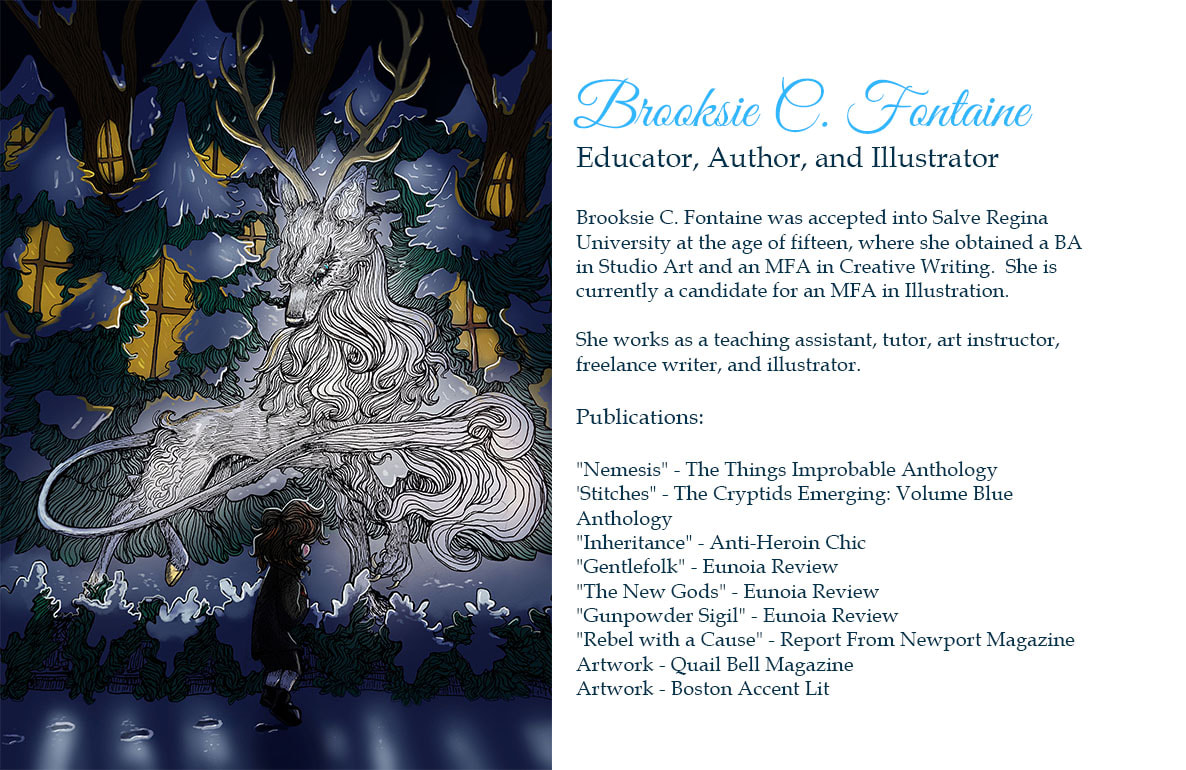
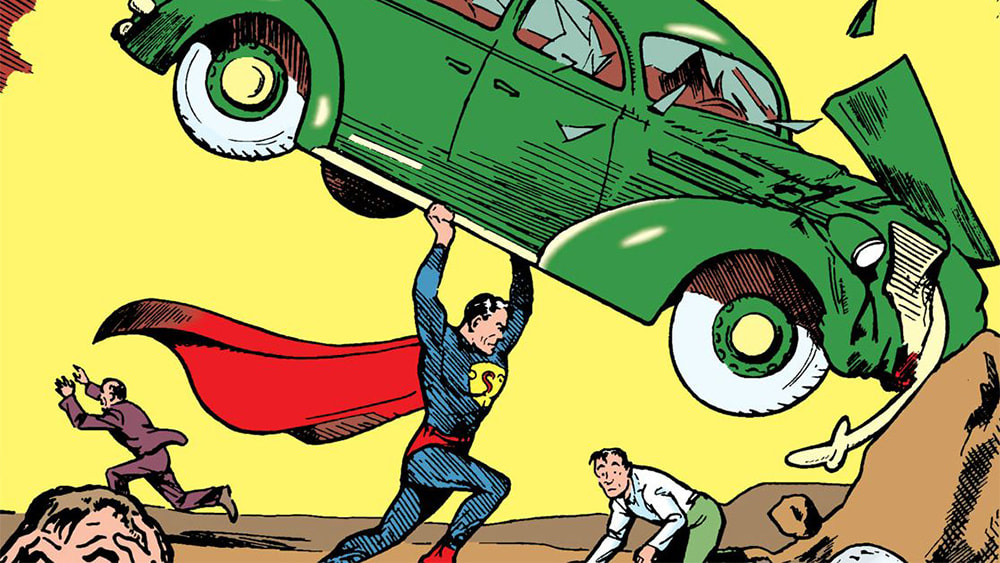
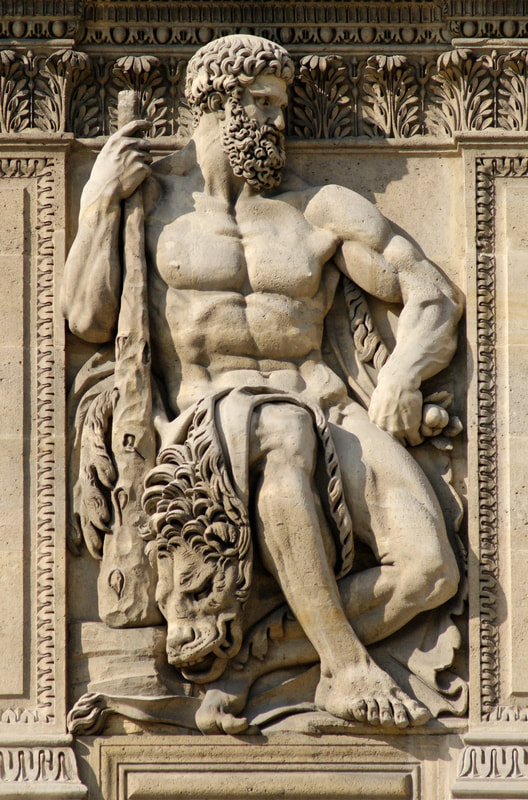
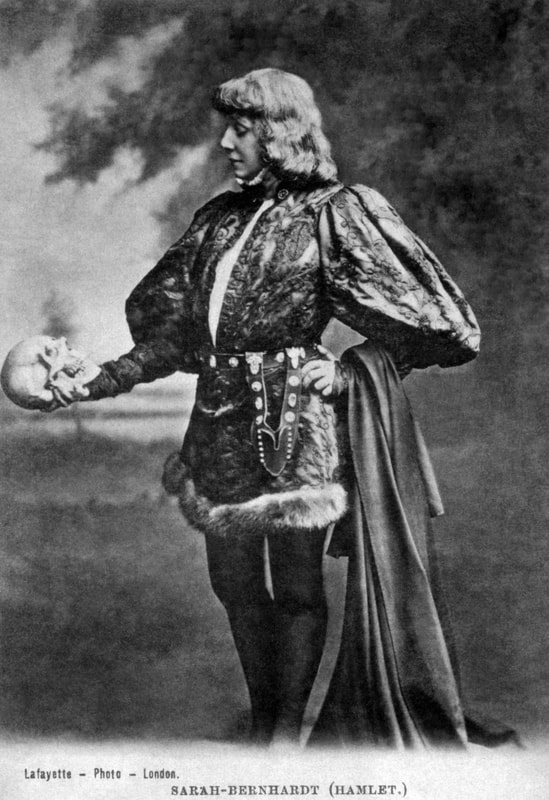
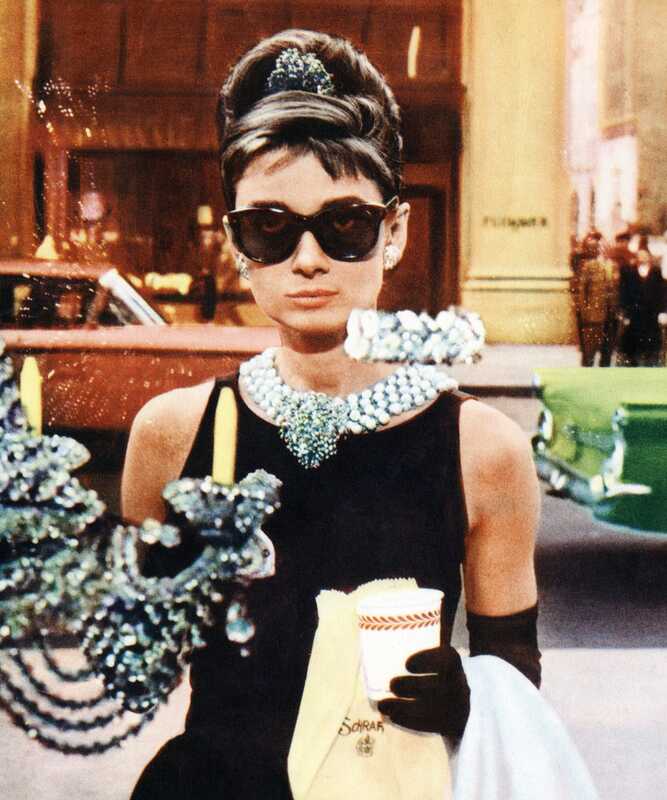
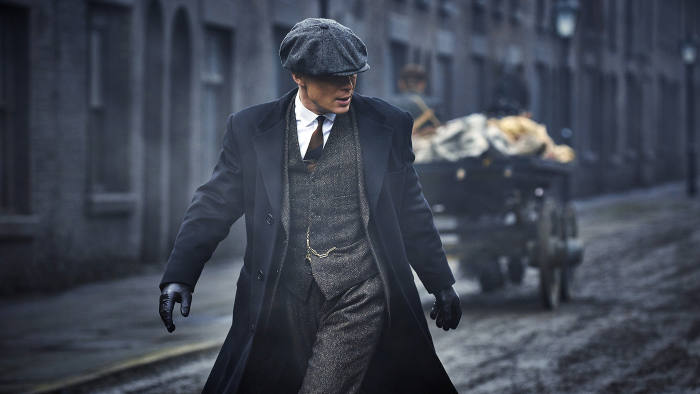
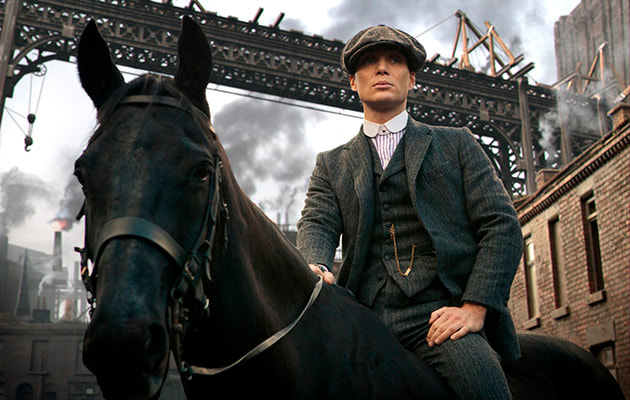
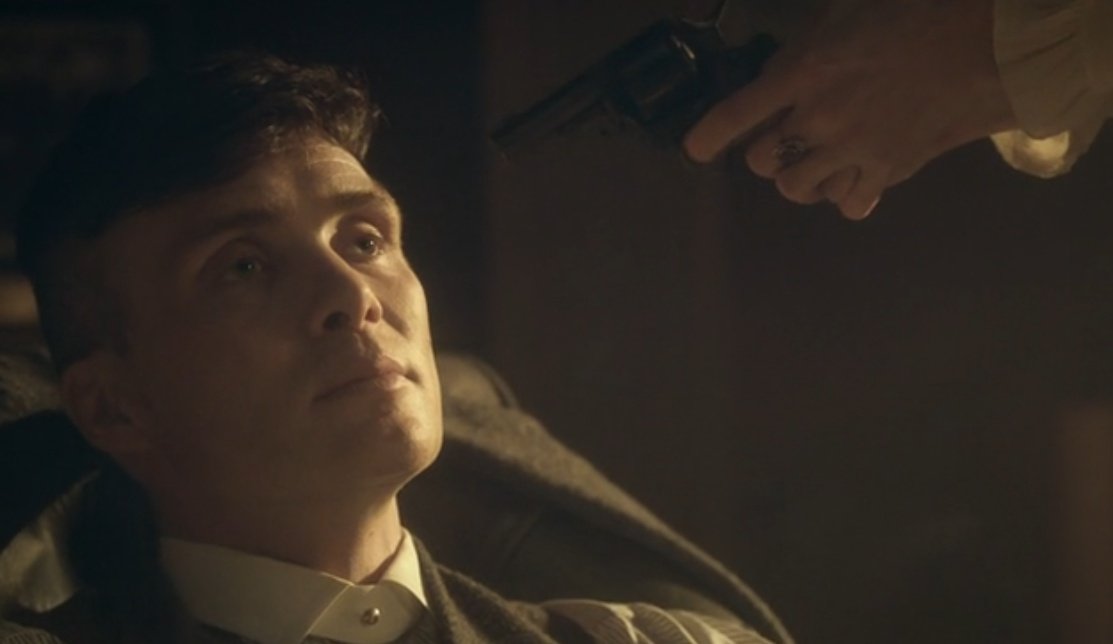
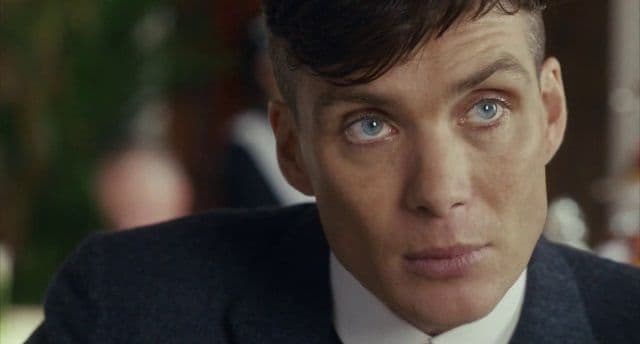
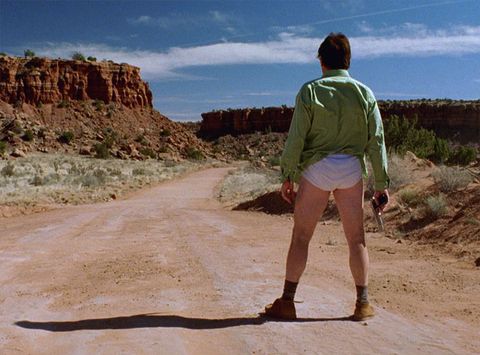
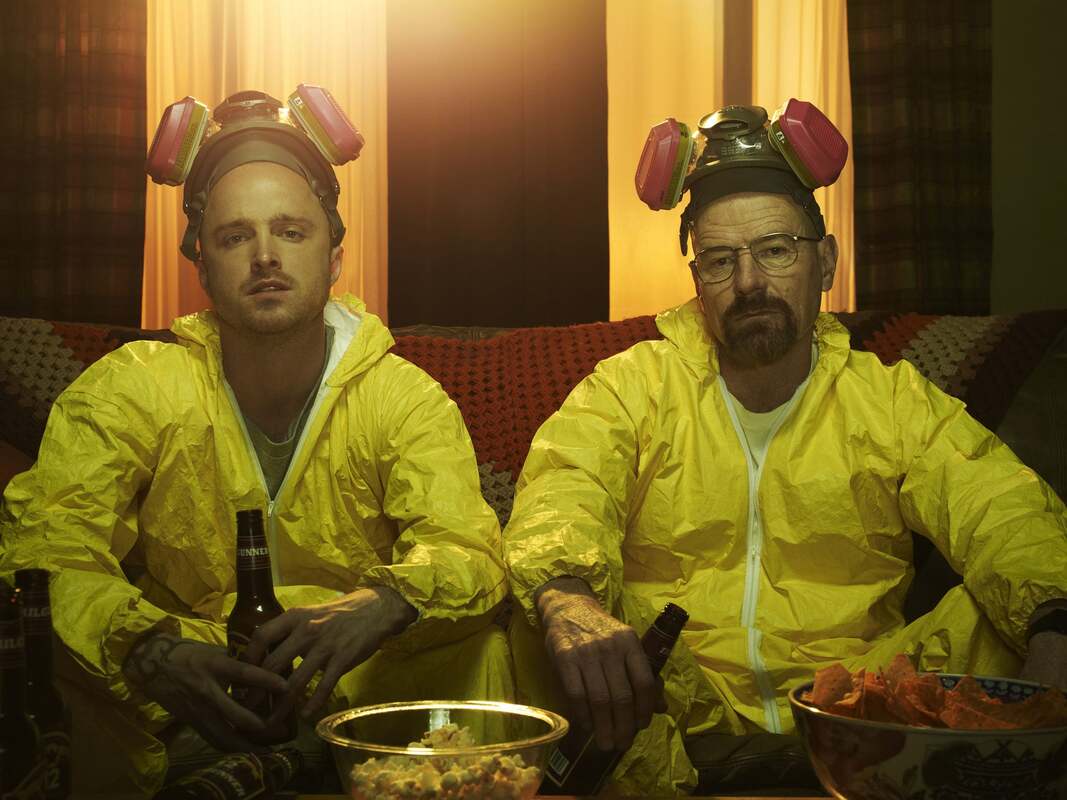
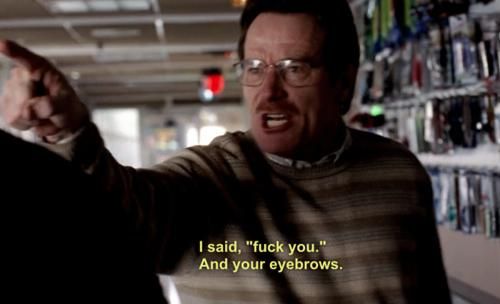
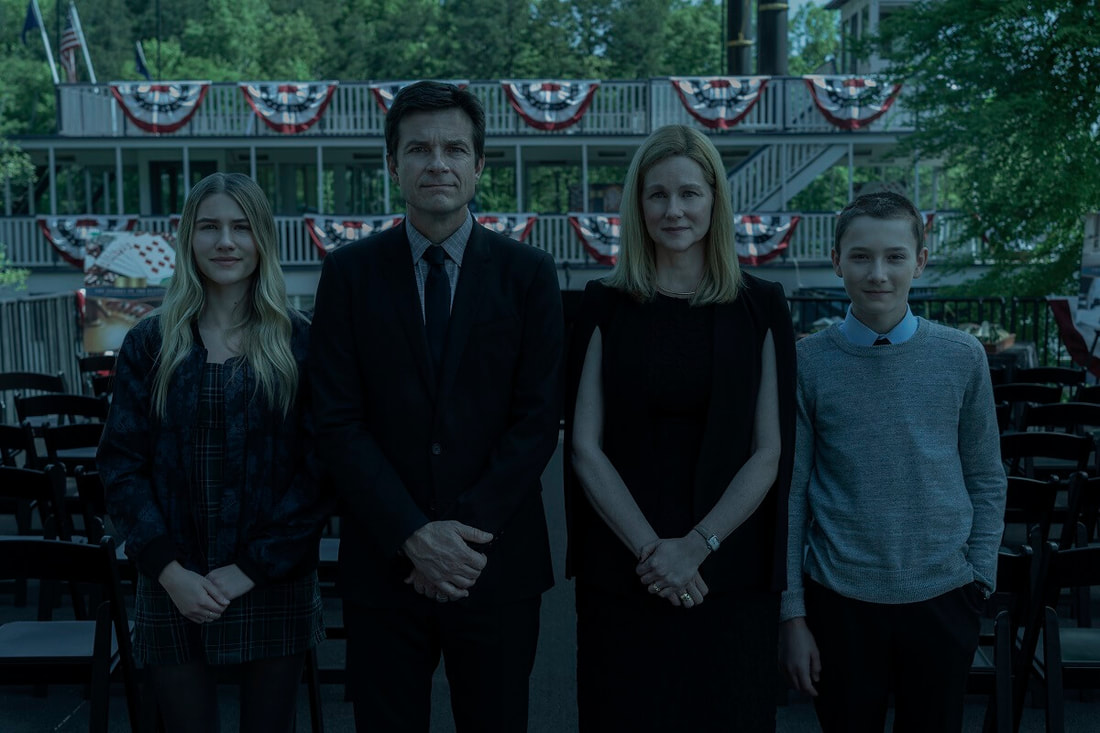
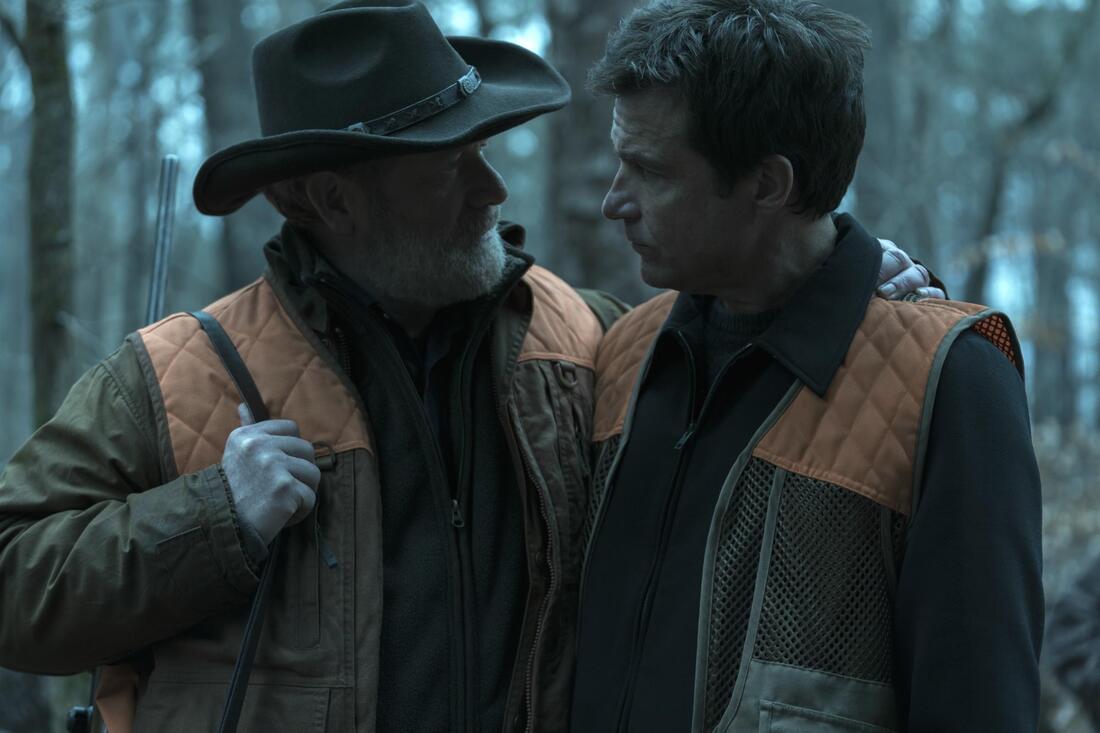
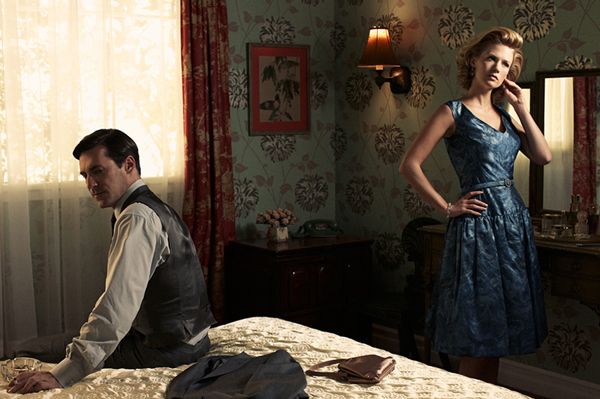
 RSS Feed
RSS Feed
